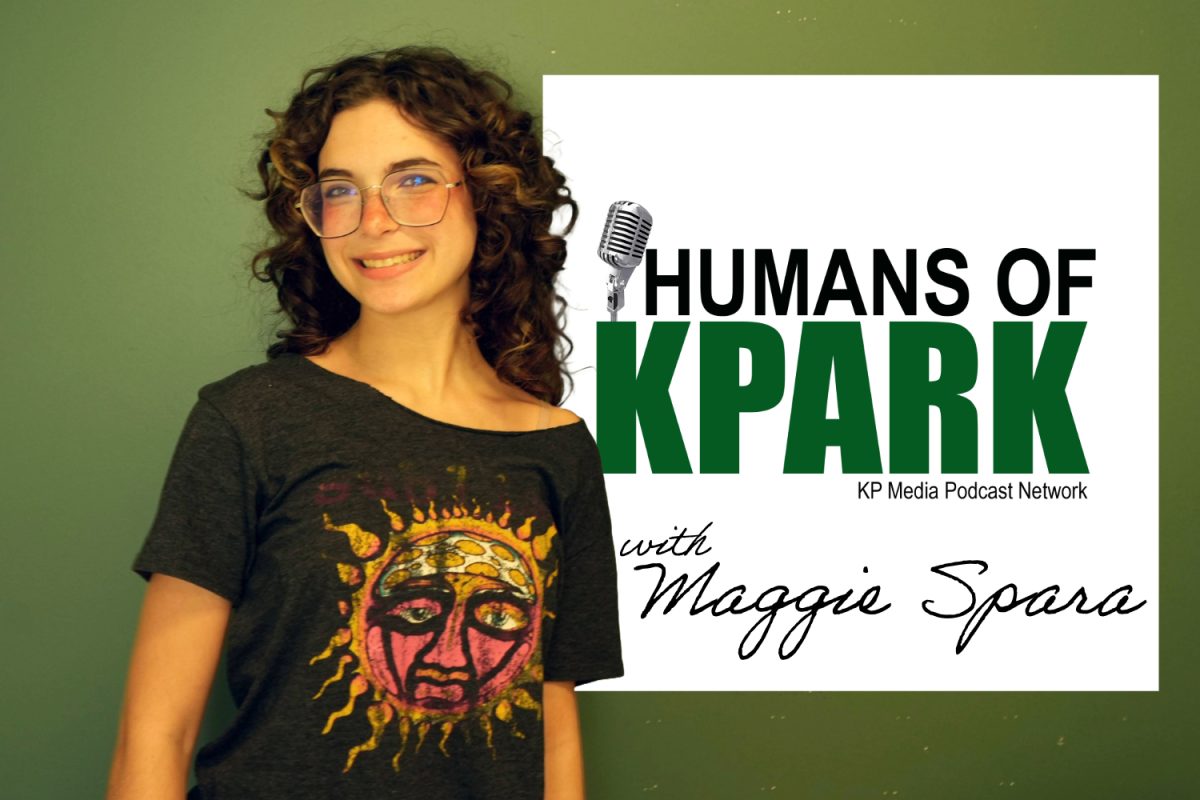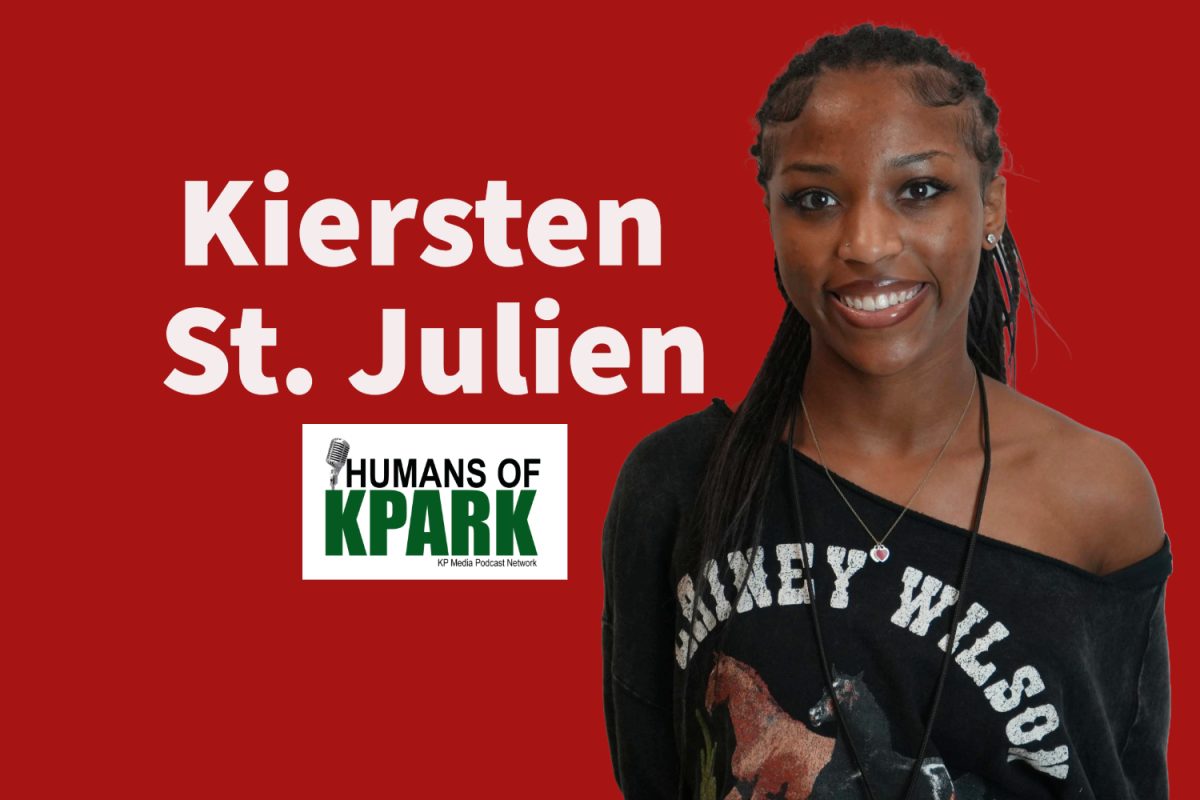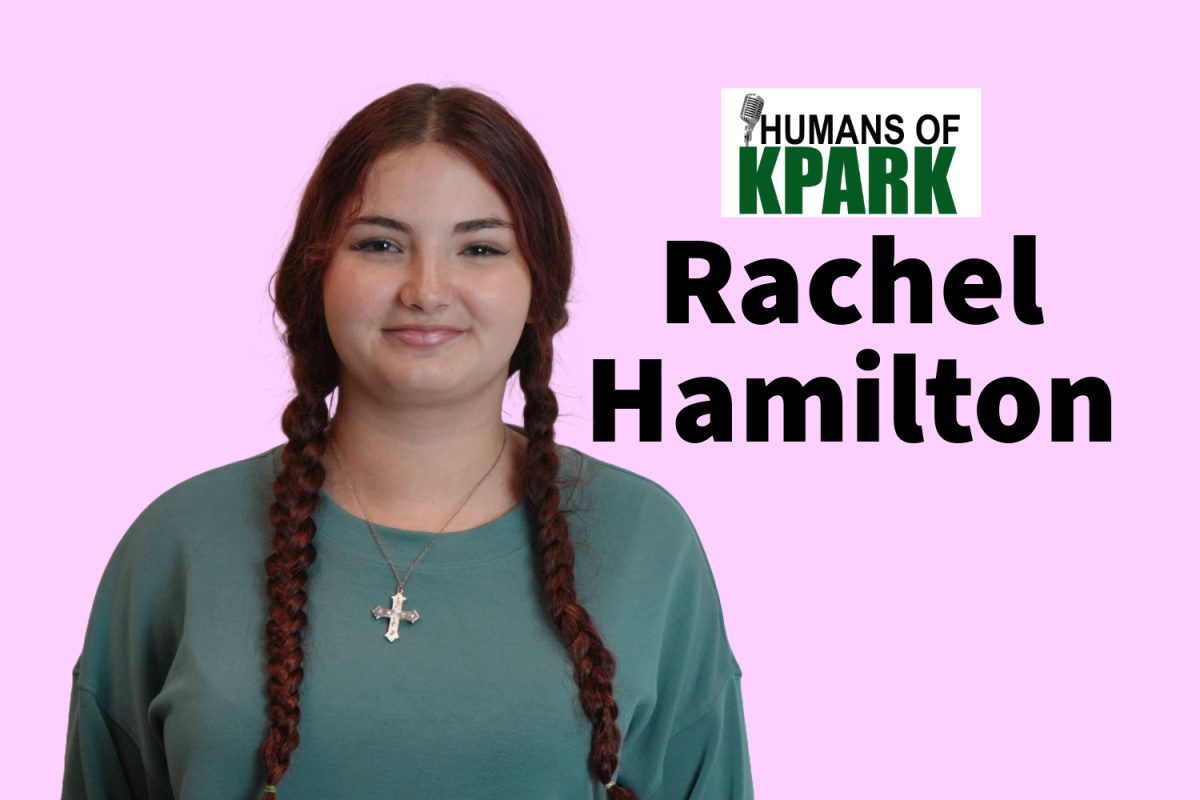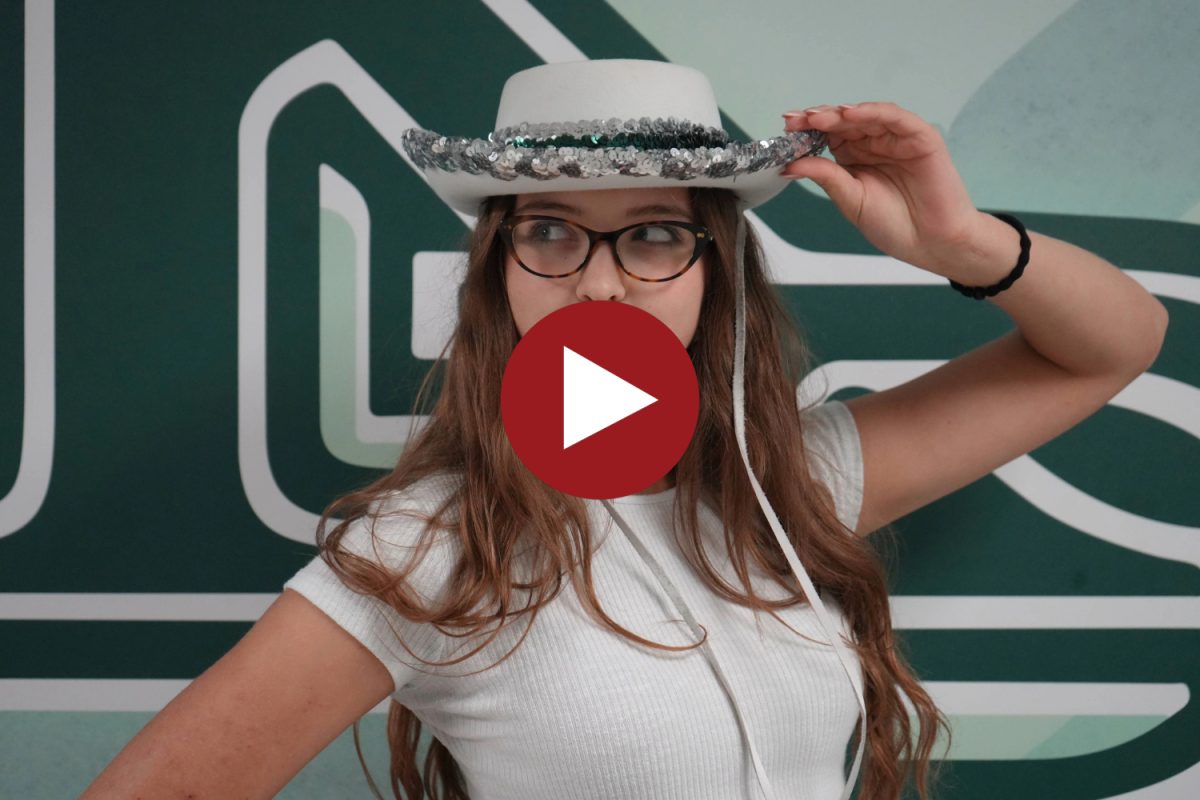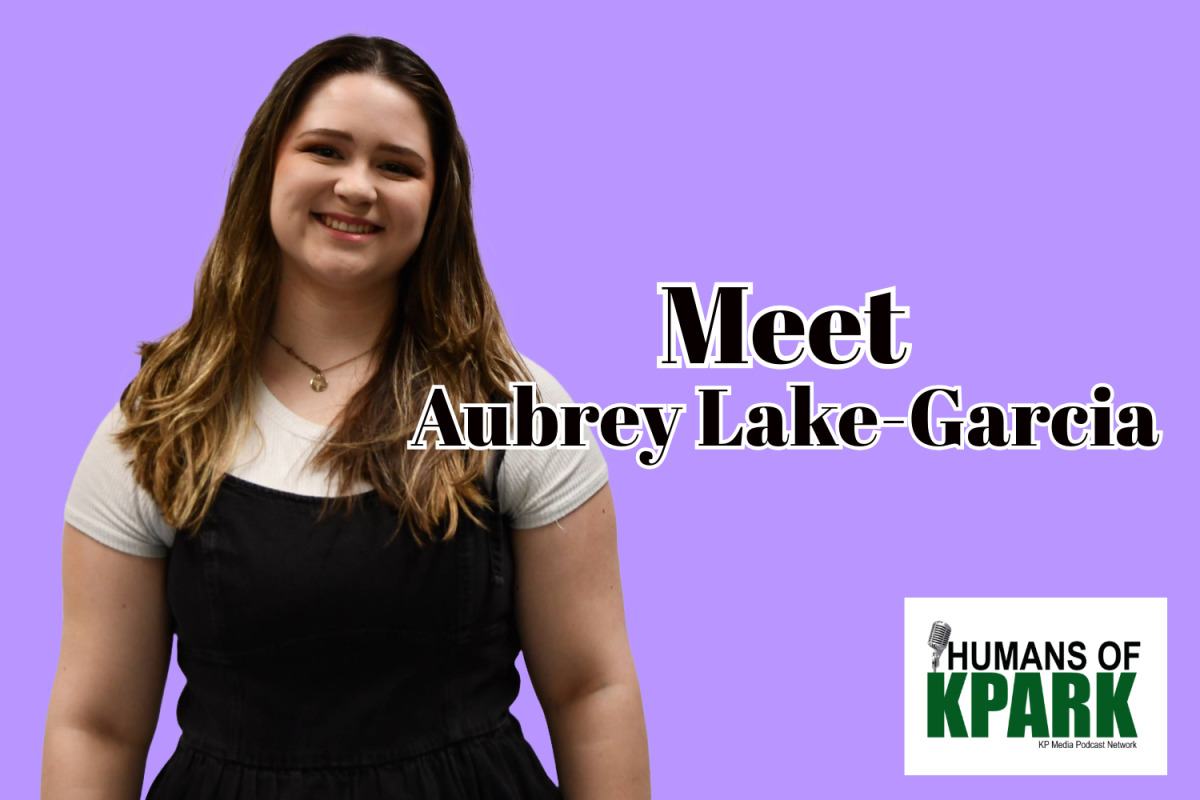Welcome to the first episode of Our Minds with Victoria Anisi and Laura Eymann. This episode focuses on perspective & emotions.
VICTORIA: Hey, guys. My name is Victoria Anisi, and today I’m here with Laura Eymann. Hey, Laura.
LAURA: Hey.
VICTORIA: So we’re going to be talking about how our past experiences influence our perception of new experiences. What do you think about this, Laura?
LAURA: I think that it’s a very interesting topic because we all have such different, unique experiences in life. And this leads us into new perceptions of things that we see, especially in our future, whatever may happen next in our life.
VICTORIA: So you are trying to tell me that if we are looking at the same object, we see things differently, like we perceive them differently.
LAURA: I think that when we look at an object, we can all visually see the same thing, but we can associate it differently. We can sometimes think of past experiences when we think of that object, or it can remind us of certain things or give us a certain feeling, etc..
VICTORIA: Why do you also think that bad experiences from our past seem to be so significant? Like it seems to hold so much significance, like so much impact? Why do you think so?
LAURA: I think this is because when we have a bad experience, it’s unpleasant for us. It can be painful and it can lead us down a new route because sometimes we are forced to change ourselves, to improve and not deal with those bad experiences again. Like, for example, if you have a good grade on a test, you’re going to be happy because you had a good grade and that’s it.
You accomplished it. But if you had a bad grade, you would have to go over the concept again. You would have to study it again because you want to get that good grade. And while you are doing that, you learn new things, gain new knowledge and experience. And now you take new things with you. With that experience.
VICTORIA: So concisely bad experience somewhat enforces change. Like it makes us want to sit up and act better.
LAURA: Yes.
VICTORIA: That’s nice. Do you think we should be thinking more of like of all good experiences or like, you know, since we always, like most of us, like, think about bad stuff. What about the good ones? You know, chocolates, butterflies, anything?
LAURA: Yes. I also think that we should remember our good experiences, because I feel like in life and as as humans, we tend to forget the achievements or discard the achievements that we have and the things that we have accomplished, because we’re constantly thinking of the next thing that we have to worry about, especially in this society, too. So we have to take the time to remember what we have accomplished, because this also helps us and it reminds us of what we’ve done.
And it can encourage us, you know, going on in the future, in life.
VICTORIA: So tell me, Laura, how do you feel right now? Like, just talking to me, I mean, what emotions do you feel?
LAURA: I feel good.
VICTORIA: That’s very good. That’s good. What do you think about, like, keeping our emotions in check? You know, some people don’t, like, try to control the way that they feel. Some people actually try to, like, cease the way they feel. Do you think it will backfire? Do you think we should, like, control how we feel? You know, what do you think?
LAURA: Think we should definitely we should definitely be mindful of our emotions so that we don’t act in impulsive ways. And we can also understand ourselves and how we react more. How do I say this in a more calm and understanding and put together way?
VICTORIA: Am I not allowed to be angry?
LAURA: You are allowed to be angry. But I think personally it is better to take time to process that anger and not let that anger unleash itself. Because I feel like when we have a very intense emotion, we are not thinking logically. So we need to take some time and just process it, let it flow through, and then once it’s calmed down, then you can talk about it, process it out and then be understood and heard and everything.
VICTORIA: Redirection. How do you think we should, like, redirect our anger, especially those intense ones, you know, when you’re excited, it’s not really an intense emotion. It’s actually what causes us relief, but intense emotions like where you really want to punch something so bad, you know, what do you think we should do? How do we redirect that anger?
LAURA: Well, this is a tough one because everybody is so different. And honestly, everybody would have to find their own coping way to deal with these emotions. But I feel like something that would help is taking a look at the environment around you, like mindfulness and being in the present moment and shifting your mindset on that. Think of the fact that you’re right there in that room right now and the thing that caused you anger that is outside of you, but you are inside of you and you can control how you want to feel and what you want to think about.
VICTORIA: Oh, that’s a very nice way to put it. Be slow to anger. And be slow to speak like, you know what you say. So out there, what advice would you give people that have like, um, I don’t know whether it’s called emotional disorder, but you know, there are definitely people that are up there like they literally amplify their emotions. Like if they’re very happy, you can tell that they are happy. It’s not something you like. You don’t need to guess. Right? And when they are sad, you can tell they’re sad. Is it a good thing to be so expressive?
LAURA: Um, I think I have thought of this before, actually. It’s a very interesting thing because you want to be heard and understood, but at the same time, you don’t want to, like, freak everyone out because only you know why you got angry and what you’re feeling and everything. But I think that I’m still thinking about it.
LAURA: What was the question?
VICTORIA: No, it’s okay. The question was like, do you think we should be very expressive? Like, you know, when you get to like you like to be very expressive. If you’re angry, you are so angry or if you are sad, you’re so sad. What do you think?
LAURA: Okay. So, yes, I think that, I don’t think you should be so expressive. I think it also depends on the situation, though, because you also want to be heard and understood. If it’s like anger, one, obviously everybody’s going to get defensive when you’re angry because they’re not going to understand exactly how you’re feeling and what led to that. So with anger, definitely, I think that you should take a moment to reflect and calm down the anger until you’re ready to speak logically.
VICTORIA: But like, do you notice that for some reason that some like emotions we have to tone down and there some that are okay? Like when we’re excited, we get to be very excited. Nobody cares. In fact, people around you will be happy. But when you’re angry and you get very angry, everybody’s like, No, no, no, no, don’t do that. Like, control yourself, be comported. What do you think about that? Like, why do you think it’s fair to, you know, tone up certain emotions we are feeling and tune down some certain ones.
LAURA: It’s a very interesting thing. Yeah I’ve also thought about this. Well, when we’re excited we are not, we are happy because of something. And it doesn’t really affect the other person. If that makes sense. When we’re angry, we are angry and it’s because something caused us pain. And when we’re excited because something good happened. And when we’re angry, we can get violent. Our moods can be very intense. They can be unpredictable. But when we’re excited, we’re calm, we’re happy and we do good things because of that.
VICTORIA: Oh, Laura. That’s our time. Thank you guys so much for listening to this. You guys have been a very wonderful audience and thank you, Laura, for being on here today. I really appreciate you. And you guys, quick advice. Be careful. You know, if you’re going to do something that would hurt another person, don’t do it. Don’t don’t it. Regardless of how you’re feeling, tone down your feelings. Is that a good advice?
LAURA: Yes.
VICTORIA: Thank you so much for listening. I’m Victoria…
LAURA: And I am Laura.
VICTORIA: Have a nice day. Thank you. Bye.
Audio in the podcast is “A Darker Heart,” which is composed and produced by Jason Shaw and available on Audio Nautix.


